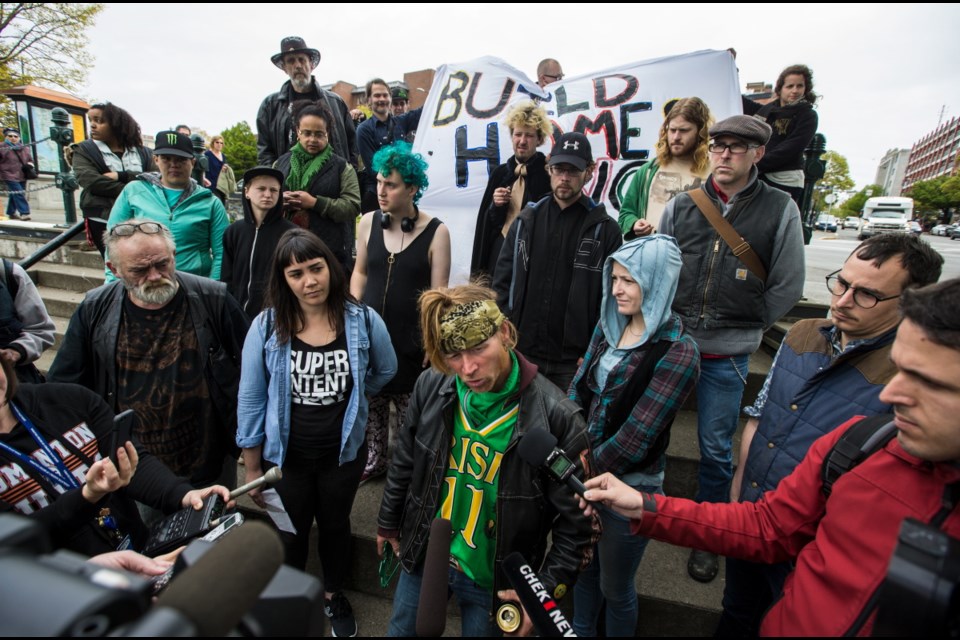The community of tenters in Reeson Park in downtown Victoria has adopted a new name for itself: “Chattel City.”
The name is a reference to the portable possessions — tents, backpacks and other camping gear — that tenters complain they routinely lose to enforcement by police and other officials.
City of Victoria bylaws permit homeless people to camp in most city parks if there are no shelter beds available, but shelters and belongings must be packed up by 7 a.m.
Police wake the tenters each morning at 7 a.m.
Park workers shoo them out and quickly clean things up, and campers say their portable goods get lost.
“A storage system would work — or at least a permanent location, where we can set up and don’t have to take things down every morning, would be better,” said Roland Hanna, 31, a 10-year veteran of homelessness in Victoria, now camping in Reeson.
About 20 people gathered Tuesday at the park, a small grassy area on Wharf Street at the bottom of Yates Street, to speak out about the level of homelessness in Victoria and across B.C.
Many complained that few ideas on dealing with extreme poverty are being offered by parties and candidates in the May 9 provincial election.
“They should expect people will build shelters and communities wherever they can, and that means like this one today in Reeson Park,” said Stephen Portman of the Together Against Poverty Society.
In a statement, Victoria city clerk Chris Coates said bylaw officers and police do their best to enforce and manage city regulations in a compassionate way.
Any items removed, collected and believed to be of value are held to be reclaimed, Coates said.
The municipality is also working with social-service and social-housing providers to find support for the campers, the statement said.
People at Tuesday’s gathering said 30 to 40 people have been pitching tents at Reeson Park for the past few months.
They complained about a lack of safety in new social-housing facilities and said they are better off tenting outdoors.
Shelters require people to be inside too early, denying them access to the late-night pub crowd, who they said tend to be more generous toward panhandlers than people during the day.
“With shelters, you have to be in at certain times,” Hanna said. “You are not able to do anything.”
A previous tent city on the lawn next to the Victoria courthouse was on land owned by the provincial government. As a result, the city bylaw regarding sheltering in parks could not be enforced. That encampment became semi-permanent, with walls and barriers.
The provincial government closed the camp last August after investing in social housing.
Cleanup of the site — including rodent control and removal of soil contaminated with camp-stove fuel and methamphetamine — cost the province about $350,000.
It is being turned into a playground with about $280,000 in provincial and donated money.



